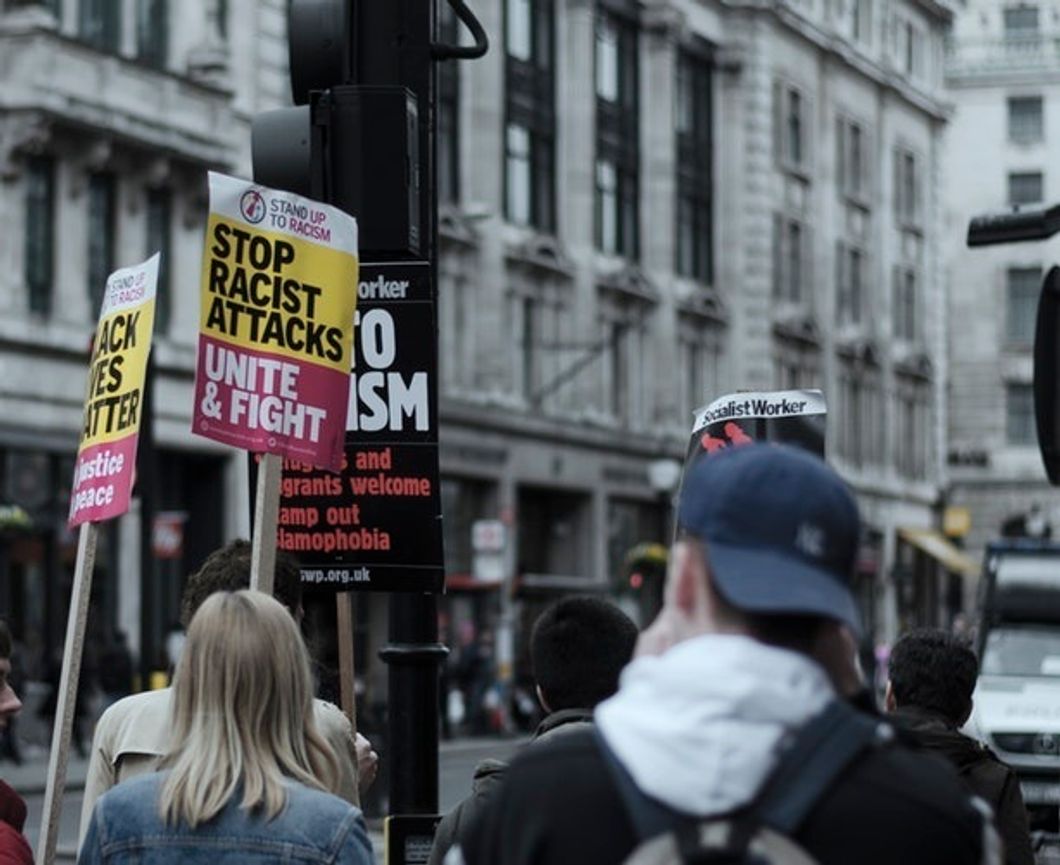Recently, pictures were released of a party in my college's town. This off-campus house party had two very distinct features: A huge painting of a swastika, and a whiteboard reading "No liberals, Jews, Muslims, queers, or Hmongs."
As disgusted as I was by seeing these pictures, I couldn't say I was surprised. Neither my college nor the town it's in have the best reputation when it comes to acceptance of diversity; but more importantly, white people don't have a good track record for being accepting. This goes without saying, but it seems like there's a lot of us who don't think that racism, or bigotry of any kind, is "still" a problem.
It is still a problem, though, the hateful signs and symbols on display at a party in my college town being a shining example. And it isn't just about the people who made the decision to write the hateful messages or hang up a hateful symbol--it's about the people who walked in, saw it, and ignored it. The passiveness that so many white people demonstrate when we're around bigotry is only supporting it. Even among self-proclaimed allies, staying silent amidst unjust situations is an issue. How can we call ourselves allies to the cause when we can't even find the guts to stand against it when we see it?
Another thing that many of us need to realize is that racism and other forms of bigotry aren't just outward acts like banning certain people from a party or openly declaring hate for someone. Even the things that seem "small," or too many people may not even seem like a problem at all--for instance, non-black people saying the N-word in a song--contribute to the systematic issue that is racism. That's why looking the other way, laughing at your friend's questionable "jokes," or brushing off "casual" use of a racial slur are still acts of racism, whether they were intended to be or not.
Because that's a whole other aspect, too: intention. More specifically, what more white people need to realize is that when it comes to race-related issues, our "intention" really isn't what matters. Actions--or the lack thereof--speak volumes, and even if we didn't mean to offend anyone, there's always a possibility that we did. And if our actions or words did, in fact, offend someone, it is absolutely not our place as people who do not face discrimination based on our race, to tell others that what we did or said didn't cause any harm. In other words, to fellow white people, here's a hint: If a person of color tells you that something you said was offensive, they are right. And they will always be right. This is not an opportunity for you to play "devil's advocate" or try to explain why you don't think what you said was offensive. This is the part where you apologize, learn from your mistake, and keep it moving. Bonus points if you pass it along to the next white person who decides to say something stupid.
As a white person myself, I am never going to understand what it feels like to be discriminated against because of my race. Nor am I going to understand what it's like to be discriminated against because of my sexual orientation or religion, being straight and of Christian background. All I can do, and all anyone else with as much privilege as me can do, is listen to people of color and members of other marginalized groups, educate ourselves, learn from our mistakes when we mess up, and most importantly, stand up for others when we see discrimination. I don't know about you, but I want to live in a world where everyone feels welcome--and this will only happen when we can come together to fight the hate that still persists.

















